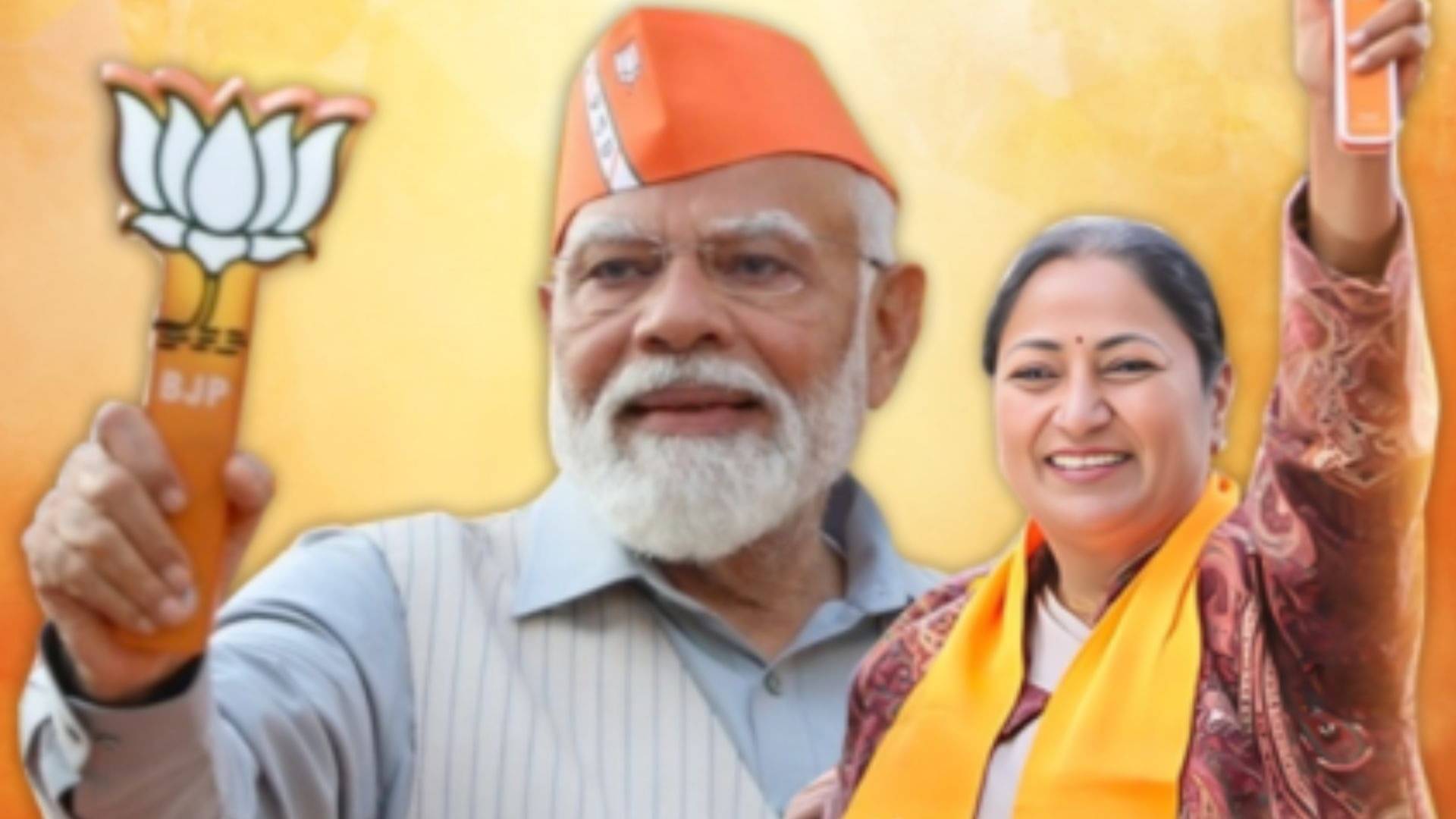Rekha Gupta’s leadership will test BJP’s Viksit Bharat vision—breaking dynasties, empowering women, and reshaping India’s political landscape for 2047.
| Image:
X
The appointment of Rekha Gupta as Delhi’s first BJP woman Chief Minister is nothing short of a political masterstroke by Prime Minister Narendra Modi. After twelve days of suspense following the BJP’s victory in the Delhi Assembly elections, PM Modi’s pick reflects not only strategic foresight but also the party’s larger national aspirations. A staunch RSS worker with decades of grassroots experience, Rekha Gupta’s appointment signals a strong ideological assertion and a challenge to dynasty politics in India.
A Dream of BJP: The End of Dynasty Politics?
Delhi’s new Chief Minister represents a key shift in BJP’s approach. By selecting a woman leader with deep RSS ties and no family background in politics, PM Modi has taken a direct shot at the opposition’s dynastic structures. His challenge to the Congress , asking whether they can ensure that an OBC or Dalit family has three members in Parliament like the Gandhi trio—Sonia, Rahul, and Priyanka—is a pointed political move. The implications extend beyond Congress; parties like the Samajwadi Party ( Akhilesh Yadav ), RJD (Tejashwi Yadav), and even AAP ( Arvind Kejriwal ) will feel the heat. PM Modi’s messaging is clear: BJP is the party of meritocracy, not inherited privilege.

Rekha Gupta’s rise will serve as a rallying cry in Bihar and other upcoming elections. Her appointment will be projected as an example of BJP’s commitment to women’s empowerment and fresh leadership. This aligns seamlessly with Modi’s vision for a Viksit Bharat 2047, where youth and new leadership are key drivers of change.
Rekha Gupta: A Triumph for RSS and BJP’s Women Empowerment Push
Gupta’s selection also comes at a significant moment for the RSS, coinciding with its centenary celebrations and the inauguration of a new multi-storeyed headquarters in Delhi. It is symbolic that Modi’s announcement took place as BJP stalwarts—including Amit Shah , Rajnath Singh , and Nitin Gadkari —stood beside RSS Chief Mohan Bhagwat at Keshav Kunj in Jhandewalan. This is not just a political appointment; it is a moment of recognition for the RSS and its role in shaping the BJP’s leadership pipeline.
Delhi’s political landscape now finds itself in an intriguing position. The ruling BJP has a woman Chief Minister in Rekha Gupta, and the Opposition AAP is led by Atishi. The stage is set for an intense ideological and governance battle—one that pits RSS-rooted nationalism against AAP’s populist politics.

The Making of a Leader: Rekha Gupta’s Political Journey
Rekha Gupta’s rise to power is marked by steadfast dedication and a strong grassroots presence:
- RSS Cadre: Associated with RSS for 32 years and a dedicated member of the ABVP during her student days.
- DUSU President: Rose to prominence as the Delhi University Students’ Union (DUSU) President in the late 1990s.
- Municipal Leadership: Served as a Delhi councillor from Uttari Pitampura in 2007 and 2012.
- BJP Leadership: Held positions as General Secretary of the Delhi BJP State Unit and the Mahila Morcha.
- Electoral Success: Won the 2025 Delhi Assembly election from Shalimar Bagh, defeating AAP’s Vandana Kumari by an emphatic 29,595 votes.
Her victory marks a significant moment—not just for Delhi but for BJP’s broader electoral strategy. Delhi, with its complex political landscape, has long been a challenge for the BJP. With Gupta at the helm, the party looks to cement its governance model and counter AAP’s dominance.
BJP’s Gender Push and the 33% Quota
Gupta’s appointment comes at a time when BJP is making strong overtures toward women’s empowerment. The Women’s Reservation Bill, which guarantees 33% representation for women in legislatures, aligns perfectly with her selection. Out of the 18 states where BJP has male Chief Ministers, Delhi now stands apart as the first to be led by a woman.
Modi’s narrative around “one lakh youth in politics to clean up corruption” fits into this broader theme of generational change and merit-based leadership. Gupta’s elevation is not just about Delhi; it is about reinforcing the BJP’s image as a party that provides equal opportunities to women leaders.

Looking Ahead: Rekha Gupta’s Challenge
While her selection is historic, the road ahead is filled with challenges. Delhi’s governance is a complex battleground, and she will face strong resistance from AAP and other opposition parties. The tussle between the Delhi government and the Lieutenant Governor, administrative bottlenecks, and the city’s deep-rooted infrastructural issues will all be key hurdles. However, if Gupta can successfully implement BJP’s governance model and deliver results, she could become a prominent national figure—perhaps even positioning herself for a larger role in the future.
Her tenure will be closely watched, not just for what she does for Delhi, but for the political message it sends across India. In BJP’s larger mission of eradicating dynastic politics and pushing for fresh leadership, Rekha Gupta is now the torchbearer.
Narendra Modi’s choice of Rekha Gupta as Delhi’s Chief Minister is a defining political moment. It reaffirms BJP’s commitment to meritocracy, strengthens RSS’s ideological influence, and signals the party’s broader electoral game plan. As Delhi embarks on this new chapter, Rekha Gupta’s leadership will be a test case for BJP’s vision of a Viksit Bharat—one that breaks dynasties, empowers women, and reshapes India’s political landscape for 2047.
(Disclaimer: The views expressed in this article are purely informational and Republic Media Network does not vouch for, promote or endorse any opinions stated by any third party)

